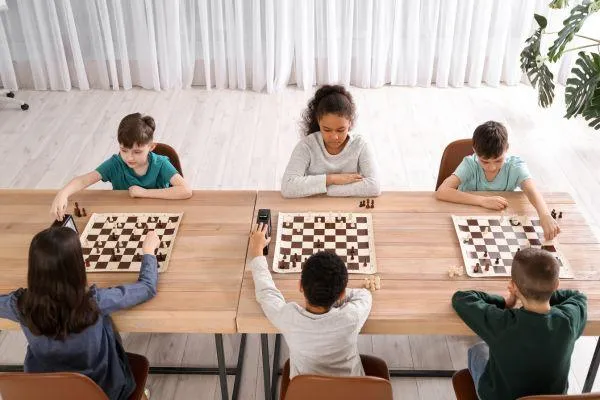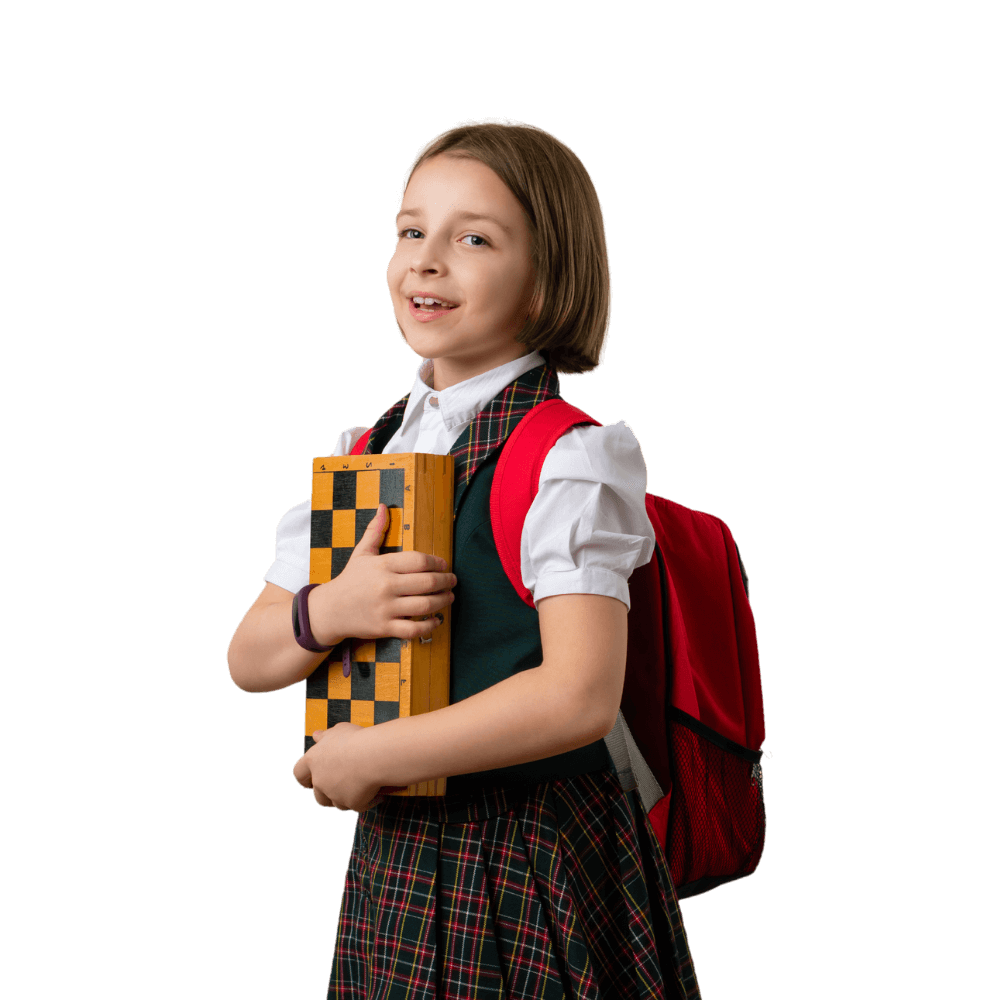
How Chess Enhances Critical Thinking Skills in Children
Chess has long been regarded as more than just a game—it’s a powerful tool for developing critical thinking, problem-solving, and cognitive skills, especially in children. In recent years, schools and parents alike have recognized the benefits of chess, incorporating it into education and extracurricular activities. In this article, we will explore how chess for kids promotes cognitive development, why it’s growing in popularity, and how CHESS KLUB is helping to foster these essential skills in young players.
The Cognitive Benefits of Chess for Children
From problem-solving to improving memory, chess offers several benefits that directly impact a child’s cognitive development. Here are a few key ways chess enhances critical thinking skills:
1. Problem-Solving and Strategy
At its core, chess is a game of strategy. Each move requires the player to analyze the board, anticipate their opponent’s actions, and plan ahead. By learning to think several steps ahead, children develop their ability to solve complex problems.
In a game of chess, no two matches are ever exactly alike. This means that children are constantly faced with new challenges, forcing them to adapt and come up with creative solutions. Chess teaches children that there’s often more than one way to solve a problem, promoting flexible thinking.
2. Pattern Recognition
Chess helps children recognize patterns and sequences, skills that are transferable to many areas of life, including mathematics, reading comprehension, and logic. As they become more familiar with the game, young players begin to see common patterns in their opponents’ moves and can develop counters to these strategies. This pattern recognition boosts their analytical skills.
3. Patience and Focus
One of the most valuable skills chess teaches children is patience. A game of chess requires concentration and careful thought. Players must take their time to consider every possible outcome of their move, which helps children learn to slow down and think critically before making decisions.
For kids who are used to fast-paced video games or immediate rewards, chess provides a valuable lesson in the importance of focus and delayed gratification. Mastering this skill can help improve their performance not only in school but also in various real-world situations.
4. Memory Improvement
Memory is crucial to success in chess. As children advance in the game, they must remember past games, strategies, and specific moves that work in certain situations. This practice strengthens both short-term and long-term memory, as well as recall abilities.
In fact, chess players often memorize entire games or specific tactics that they can draw upon in future matches. This ability to retain and apply information enhances a child’s learning process, making it easier for them to absorb and recall information in school.
5. Decision-Making and Accountability
Chess forces players to make decisions based on the information in front of them. Because each move has potential consequences, children learn to weigh their options carefully and take responsibility for their choices. Whether they win or lose, the child understands that their decisions directly influenced the outcome of the game. This accountability fosters independence and confidence in their decision-making abilities.
Why Chess for Kids is Growing in Popularity
The rise of digital learning platforms and the increasing focus on STEM (Science, Technology, Engineering, and Mathematics) education has helped shine a spotlight on the cognitive benefits of chess. More and more schools are introducing chess into their curriculums as educators recognize its ability to enhance critical thinking, creativity, and academic performance.
Parents, too, have become more interested in the game as they see the long-term advantages it provides for their children. With the emergence of online chess resources, children can now play and practice the game from the comfort of their homes, making it easier than ever to incorporate chess into their daily routines.
Additionally, competitive chess for children has become increasingly popular, with tournaments specifically designed for young players. These events provide a fun and challenging way for kids to test their skills, meet other players, and gain recognition for their hard work.
How CHESS KLUB is Helping Children Excel in Chess and Critical Thinking
CHESS KLUB is a leading organization in the Carolinas that is dedicated to fostering the development of young chess players. Through its carefully structured programs and lessons, CHESS KLUB provides children with the tools they need to excel not only in chess but also in life.
Here’s how CHESS KLUB is helping children develop critical thinking skills through chess:
1. Specialized Chess Classes for Kids
At CHESS KLUB, there are chess classes for kids near me that are specifically designed to help young players build their skills step by step. Classes are divided by age and skill level, ensuring that every child receives the instruction they need to grow as a player. Whether they’re just learning how the pieces move or working on advanced strategies, children are given the attention and guidance they need to succeed.
2. One-on-One Chess Lessons
For those seeking personalized instruction, CHESS KLUB offers chess lessons for kids near me with experienced coaches. These lessons focus on improving specific aspects of the game—whether it’s opening theory, tactics, or endgame strategies. By working closely with a coach, children receive direct feedback and guidance, helping them to rapidly improve their chess abilities.
One-on-one lessons are also an excellent way for children to develop confidence in their critical thinking and decision-making skills. Coaches help students identify their weaknesses and work to turn them into strengths, instilling a growth mindset that benefits children both on and off the board.
3. Chess Tournaments and Competitions
CHESS KLUB regularly hosts local tournaments, providing a platform for children to test their skills in a competitive setting. These events not only foster a sense of accomplishment but also encourage kids to sharpen their critical thinking and strategy as they face opponents of varying skill levels.
Tournaments teach children how to handle pressure, make quick decisions, and adapt to new situations—all valuable life skills. Competing in chess at an early age helps children become more comfortable with challenges and prepares them for future academic and personal success.
4. Chess Puzzles for Kids
Another popular feature at CHESS KLUB is their emphasis on chess puzzles for kids. These puzzles are an excellent way for children to practice solving tactical problems, improving their pattern recognition, and thinking several moves ahead.
Chess puzzles provide a fun and engaging way for children to develop their critical thinking skills outside of a typical game setting. With puzzles ranging from simple checkmates in one move to more complex tactical challenges, kids can gradually build their skills and confidence.
Chess and Academic Success
Many studies have shown that children who play chess perform better academically. The game’s emphasis on problem-solving, focus, and planning carries over into subjects like mathematics, reading, and science. In fact, schools that incorporate chess into their curriculums often see improvements in students' grades, concentration, and overall academic performance.
By teaching children to think critically and make thoughtful decisions, chess helps prepare them for academic challenges and life beyond the classroom. Programs like those offered by CHESS KLUB are helping young players strengthen these skills while having fun along the way.
Conclusion
Chess is much more than a game—it’s a tool for developing critical thinking, problem-solving, and decision-making skills in children. As more schools and families recognize its benefits, chess for kids is growing in popularity. With the help of organizations like CHESS KLUB, children can learn the game in a structured and supportive environment, gaining valuable cognitive skills that will serve them for years to come. Whether through classes, puzzles, or tournaments, chess offers children a unique opportunity to sharpen their minds while enjoying a timeless game.


